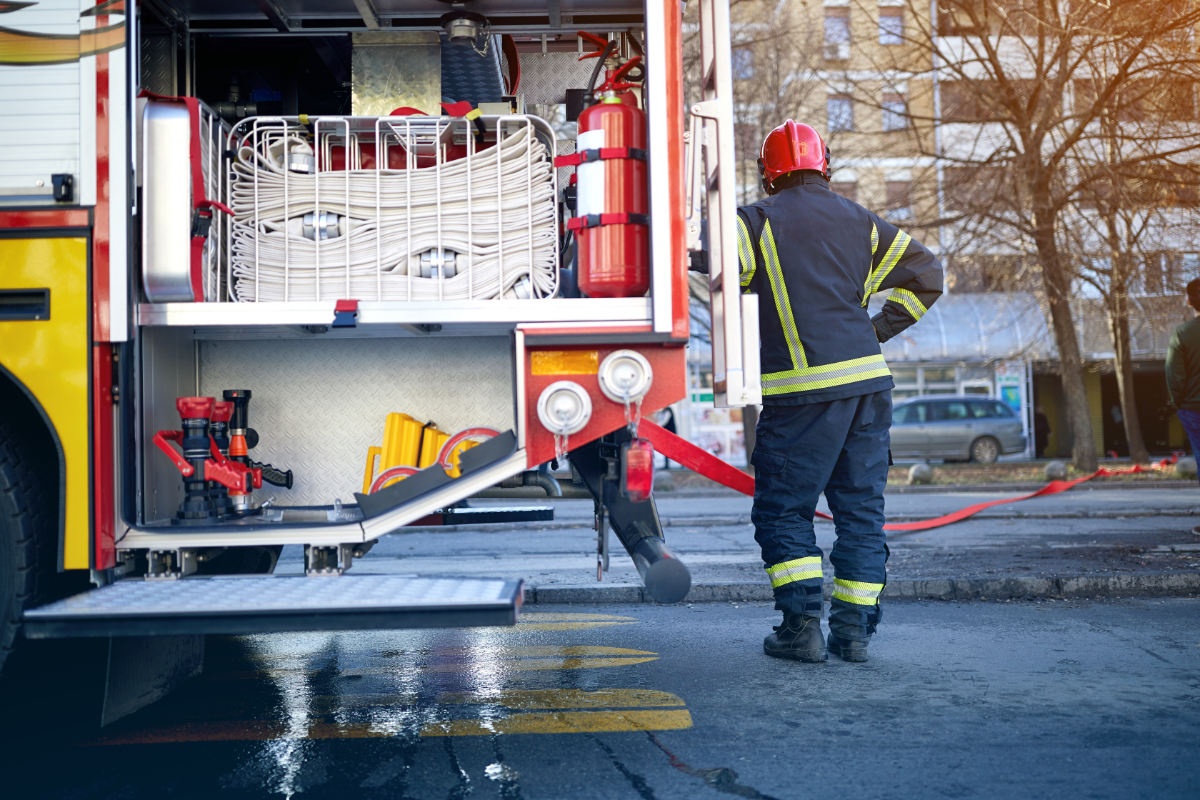By: Design for Change Recovery
Categories:
The Complex Relationship Between First Responders and Substance Use
You are here:Without our skilled and dedicated first responders, Americans would be in dire straits. We are protected and rescued from criminals, accidents, fires, and almost any type of physical trauma that everyday life brings. For these reasons, we should be aware of the problem of substance use and first responders.
Police officers, paramedics, and firefighters endure extreme stress, long shifts, and the threat of personal attacks daily. Some self-medicate to cope with their fear, stress, and emotions. As a result, a relationship between first responders and substance use is not uncommon.
First responders are tasked with protecting and serving society, however, the demands of the job can take a toll on their mental health, sometimes leading to substance misuse or inappropriate use. Sadly, drug and alcohol misuse or inappropriate use are manifestations of these high-pressure jobs.
Common Mental Health Issues Among First Responders
 Frequent exposure to significant trauma can lead to several mental health disorders. As such, first responders are highly susceptible to developing one or more of the disorders. Responding to traumatic events such as accidents, terrorism, murders, and natural disasters can leave them feeling helpless and guilty. Various manifestations of these highly-charged emotions are possible.
Frequent exposure to significant trauma can lead to several mental health disorders. As such, first responders are highly susceptible to developing one or more of the disorders. Responding to traumatic events such as accidents, terrorism, murders, and natural disasters can leave them feeling helpless and guilty. Various manifestations of these highly-charged emotions are possible.
The two most common mental health disorders among first responders are:
➢ PTSD
Post-traumatic stress disorder (PTSD) is “an anxiety disorder triggered by experiencing or witnessing a frightening event.”
The symptoms of PTSD can include nightmares, flashbacks, severe anxiety, and distressing memories.
Someone with PTSD may experience changes in mood or thinking and a sense of hopelessness. Some individuals lose interest in activities they once enjoyed and feel emotionally numb.
Other symptoms of PTSD include:
- Memory problems
- Relationship issues
- Easily frightened
- Trouble sleeping
- Irritability
- Angry outbursts
- Drinking or using drugs
- Feelings of guilt or shame
PTSD is most often associated with military veterans, however, millions of civilians struggle with the disorder as well, including first responders. EMTs report higher levels of PTSD than the general population. About 30% of all first responders struggle with PTSD symptoms.
➢ Depression
Everyone feels sad or gets the blues now and then but first responders often suffer these feelings on an ongoing basis. When these feelings persist, a person is diagnosed as being depressed. Depression among first responders stems from feelings of guilt, hopelessness, and loss inherent in their profession.
Depression can also be a symptom of PTSD and is often associated with suicidal thoughts and behaviors. It is often the root cause of many substance use disorders.
Rate of Substance Use Among First Responders
Unfortunately, the culture surrounding the profession of first responders often makes them resistant to seeking treatment for substance use disorders. This situation compounds the problem. Below are some facts to further illustrate the extent of first responders and substance use.
- 20% of EMTs suffer from PTSD
- 40% of EMTs use drugs or alcohol
- 27% of police officers develop AUD after 2 years on the force
- 36% of police officers develop AUD after 4 years on the force
- 10% of firefighters misuse or inappropriate use drugs
- 29% of firefighters misuse or inappropriate use alcohol
Although first responders are less likely to use illicit drugs than the general population, some have reported using marijuana, painkillers, and benzodiazepines.
Addiction Treatment Approaches Tailored to First Responders
Integrated addiction treatment plans are the most effective for first responders and substance use disorders. This approach to treatment combines therapies to address the co-occurring substance use and mental health disorders simultaneously.
The programs combine mental health specialists and addiction counselors from different backgrounds. A team of social workers, psychiatrists, physicians, therapists, and counselors work together to create a treatment plan tailored for each patient’s specific needs. In this way, they ensure that a person’s psychological, physical, and social needs are met and addressed.
Treatment for First Responders and Substance Use at Design for Change Recovery
Our addiction treatment program seeks to provide an individualized approach to treatment for each of our clients. However, we understand the unique challenges of first responders and substance use. With that in mind, we designed a treatment plan customized specifically to address their unique needs.
At Design for Change Recovery, addiction treatment programs for first responders include:
- Detox
- Group and Individual Counseling
- Family Therapy
- Cognitive Behavioral Therapy
- Dialectical Behavior Therapy
- Critical Incident Stress Management (CISM)
- Psychodrama Therapy
- Biosound Therapy and Biofeedback
- Music and Art Therapy
- Holistic Therapies
A program’s effectiveness is greatly enhanced when first responders interact with others from similar occupations.
Our goal at Design for Change Recovery is not only to help first responders overcome addiction. We help them learn more effective ways to cope with anxiety, trauma, and depression. With improved coping skills, they can avoid relapse and return to protecting their communities.
If you are a first responder who is struggling with substance use, contact us today at our Lancaster, CA facility to learn more about our First Responder Wellness Program. One of our representatives will be available to answer your questions about our unique approach to addiction treatment.
Sources:
- https://www.nimh.nih.gov/health/topics/post-traumatic-stress-disorder-ptsd – Post-Traumatic Stress Disorder
- https://www.mayoclinic.org/diseases-conditions/post-traumatic-stress-disorder/symptoms-causes/syc-20355967 – Post-Traumatic Stress Disorder (PTSD)


